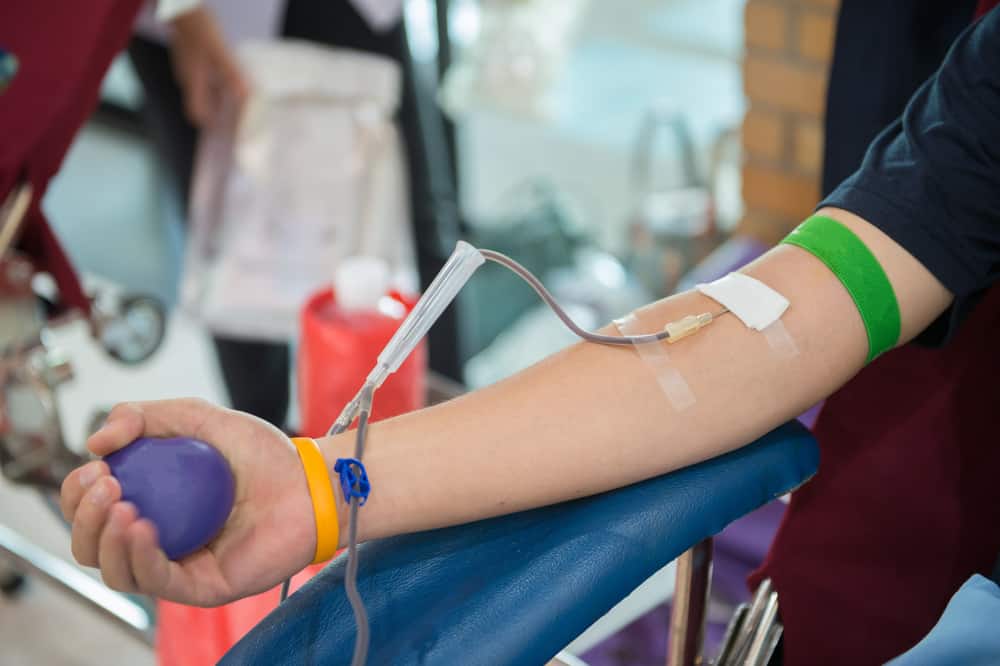Contents:
- Medical Video: Overcoming Adrenal Stress with Intermittent Fasting
- How can fasting relieve stress?
- Powerful tips to overcome stress when fasting
- 1. Get enough rest
- 2. Sahur and breaking the fast on time
- 3. Avoid caffeinated drinks
- 4. Regular exercise
- 5. Respiratory exercises
Medical Video: Overcoming Adrenal Stress with Intermittent Fasting
Solid activity on ordinary days can make a person easy to stress. Especially when fasting, busy activities throughout the day without food or drink intake certainly makes the body easily tired. As a result, you are even more easily stressed during fasting. On the other hand, experts reveal that real fasting can also relieve stress, you know! How could that be? Here's the explanation.
How can fasting relieve stress?
Fasting is proven to provide many health benefits, from controlling blood pressure and blood sugar, to the digestive system, to losing weight. Not only that, experts have developed a number of studies that show that fasting can also help relieve stress.
Reporting from Hamad Medical Corporation, fasting causes structural changes in the area of the brain associated with depression. At the same time, the body releases endorphins or happy hormones that function to improve mood.
This condition makes a person who is stressed or depressed becomes more optimistic and starts thinking positively about himself and those around him. Apart from the perceived burden and pressure of life, fasting can be a form of self-protection against emotional turmoil that can arise at any time. Thus, your mind will be much calmer than before.
In addition to relieving the stress of the mind, fasting can also reduce the workload or stress on body cells. The reason, experts believe that fasting can help repair cell damage from oxidative stress.
Oxidative stress is a condition of the body when the amount of free radicals is more than an antioxidant defense (which can prevent cell damage due to free radicals). If this oxidative stress is not immediately removed from the body, then the body's cells will be damaged slowly and cause various diseases such as stroke, coronary heart disease, even cancer.
Well, that's why fasting is very important to relieve stress physically and emotionally. With fasting, the body's resistance becomes stronger and the body's cells will continue to function better.
Powerful tips to overcome stress when fasting
Although fasting can help relieve stress, you still have to live a healthy lifestyle in Ramadan. That way, you can prevent stress during excessive fasting. How to manage stress during fasting? Check out the following tips, yes.
1. Get enough rest
During fasting, the body experiences different eating patterns and sleep patterns like the usual day. If you feel easily stressed during fasting, this could be due to your lack of sleep.
So, make sure you always get enough sleep, at least 7 hours at night so that your body's stamina is maintained. Not only does it relieve stress while fasting, getting enough sleep will also make your mood better during fasting.
2. Sahur and breaking the fast on time
One powerful way to relieve stress when fasting is sahur and breaking the fast on time. If you forget or miss the dawn, you will certainly become more limp and stressed all day. Not to mention you have to undergo a myriad of activities that require extra energy.
Not only at dawn, you are also not recommended to delay the breaking of the fast. Because, this is the time for you to fulfill your nutritional needs after a day of fasting.
In order not to be easily stressed during fasting, fill the meal menu of sahur and break the fast with foods rich in B vitamins, calcium, and magnesium. Vitamins and minerals are very important as a source of energy while helping to relax the body's muscles during fasting.
Sources of foods rich in B vitamins include milk products, eggs, meat and green vegetables. While food sources of calcium and magnesium that are good served at dawn or breaking the fast are milk, yogurt, beans, broccoli, and avocados.
3. Avoid caffeinated drinks
If you are a connoisseur of caffeinated drinks, you should not dawn or break fast with coffee for a while. This is because caffeine in coffee can make you more anxious and stressed.
The response of each person is different, there are those who just drank coffee a little already feeling restless or stressed. There are also those who have drunk several cups but don't feel any effects. Well, if you are the type that easily reacts to coffee and other caffeinated drinks, you should reduce the fasting month first.
4. Regular exercise
Sports is one of the most important things you can do to deal with stress during fasting. The reason, exercise can reduce the hormone cortisol or stress hormones in the body. Not only that, exercise can also release endorphins, aka happy hormones, which can improve your mood while fasting.
Therefore, make a commitment to exercise regularly, at least 30 minutes every day for 5 days a week to help relieve stress during fasting. There is no need to force yourself to choose high-intensity exercise, just do light exercise such as jogging, cycling, or yoga so that the body stays relaxed all day.
5. Respiratory exercises
When your mind starts to feel tired, the body activates the sympathetic nervous system which then directs you to stress symptoms. For example, the heart beats faster, breathing hunts, and blood vessels narrow. At the same time, the muscles of the body will begin to tighten so that you become emotionally easy.
To deal with stress during fasting, try to practice breathing. The trick, take a deep breath through your nose and feel every air that enters your lungs. Hold for a few seconds then gently exhale through the mouth.
This will help activate the parasympathetic nervous system and produce a relaxation response to the body. The heartbeat will slow down so you become more relaxed and calm when hit by stress when fasting.

















